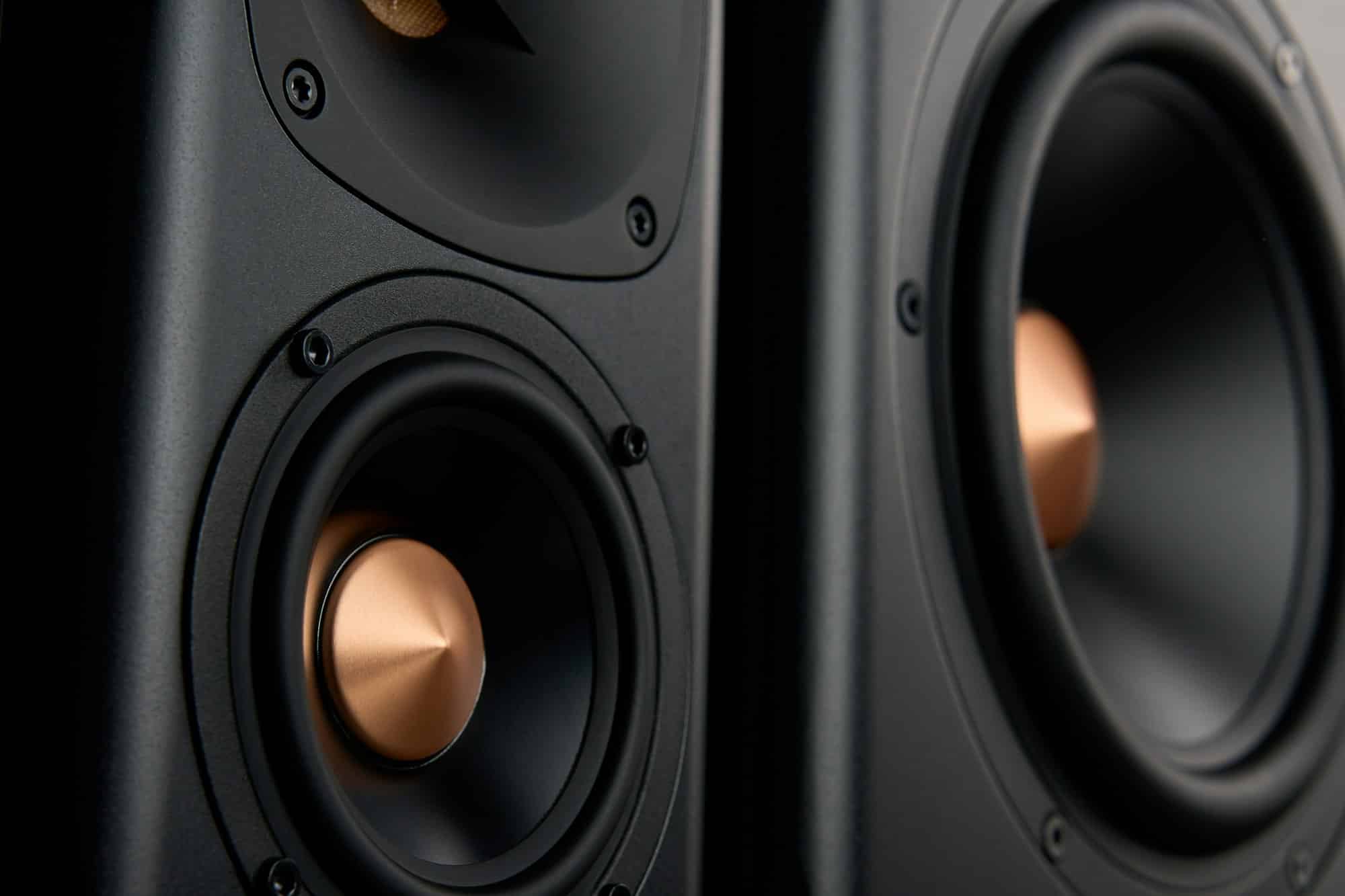How to Choose the Right Sound System for an Open-Plan Living Area?

The open-plan living area, a hallmark of many contemporary homes, poses certain challenges when you’re choosing a sound system. As a combination of kitchen, dining, and living space all in one, the room requires a speaker setup that can do justice to every part of it. You need audio that’s immersive, enveloping, and able to fill the entire space without distorting or getting muddled. Unfortunately, there’s no one-size-fits-all solution. The best system for your open-plan living area will depend on several factors, including the room’s size, shape, and furniture arrangement.
1. Understanding the Basics of Sound Systems
Before you can start choosing your speakers, you need to understand some basic terminology. A sound system is made up of various components, including the speakers, the subwoofer, and the amplifier or receiver.
A lire en complément : How Can You Create a Special Needs-Friendly Bathroom with the Latest Technologies?
A speaker is a device that turns electrical signals into sound. Most speakers are passive, which means they need to be powered by an external amplifier. Active or powered speakers, on the other hand, have built-in amplifiers.
The subwoofer is a type of speaker that’s designed to reproduce lower-frequency sounds or bass. It adds depth and richness to the sound and is especially important for movie soundtracks and music with a heavy beat.
Avez-vous vu cela : What’s the Most Efficient Layout for a Dual Home Office for Partners Working from Home?
The amplifier or receiver is the heart of your sound system. It takes the low-level signals from your audio source, amplifies them, and sends them to your speakers. A receiver is essentially an amplifier with a built-in radio tuner and inputs for connecting various devices, such as a TV or Blu-ray player.
2. Choosing the Right Speaker Configuration
Speaker configuration refers to the number of speakers and their arrangement in a sound system. The most basic configuration is 2.0, which consists of two speakers. This setup is suitable for stereo music but lacks the depth and envelopment of a surround sound system.
A 5.1 system includes five speakers and one subwoofer. The speakers are placed in front of and around the listener to create a 360-degree sound field. This setup is great for movies and TV shows, as it allows sound effects to move around the room.
For an even more immersive experience, you might consider a Dolby Atmos system. These systems use overhead or ceiling speakers to create a sense of height, making it feel like sounds are coming from all around and above you.
3. Considering Room Acoustics
The acoustics of your living area will have a significant impact on the sound quality of your system. Hard surfaces such as glass windows and tile floors can cause sound to bounce around, leading to echoes and distortion. On the other hand, too many soft surfaces, like carpets and heavy curtains, can absorb sound, making it seem dull and lifeless.
To improve the acoustics of your room, you might need to add some soft furnishings, like rugs or upholstered furniture, to cut down on echo. Conversely, if your room is already full of soft surfaces, you might need to add some hard ones to liven up the sound.
The placement of your speakers also plays a crucial role in how your system sounds. Generally, speakers should be placed at ear level when seated and angled towards the listening area. Keep them away from walls and corners to avoid boomy bass and uneven sound.
4. Selecting the Right Speaker Brands
There are countless speaker brands available on the market, but some are known for their superior quality and design. Sonos is a popular choice for its sleek design, easy setup, and great sound. Their wireless speakers can be placed throughout your living area to create a seamless sound experience.
Bose is another trusted name in the audio industry. The brand is best known for its noise-cancelling headphones, but they also produce excellent home theater systems and speakers.
If you’re looking for a budget-friendly option, brands like Polk Audio, Yamaha, and Klipsch offer affordable yet high-quality speakers.
5. Hooking Up Your System
Once you’ve chosen your speakers and subwoofer, you’ll need to connect them to your amplifier or receiver. The most common way to do this is with HDMI cables. These cables can carry both audio and video signals, making them a convenient choice for home theater systems.
If you’re using a soundbar, you might be able to connect it directly to your TV with an optical or HDMI cable. In this case, the soundbar will act as a speaker and an amplifier, so you won’t need a separate receiver.
When hooking up your system, it’s important to pay attention to speaker polarity. This means connecting the positive (+) terminal on the speaker to the positive terminal on the receiver, and the negative (-) to the negative. Getting the polarity wrong can result in thin, weak sound, so it’s worth taking the time to get it right.
Choosing the right sound system for an open-plan living area involves understanding the basic components, deciding on a speaker configuration, considering room acoustics, selecting a reputable brand, and finally, setting up your system correctly. With these guidelines, you will be able to create a sound experience that’s as immersive and satisfying as anything you’d find in a dedicated home theater.
6. Integrating Advanced Technologies
In a modern open living area, a sound system must seamlessly integrate into the space without being intrusive. With the advancement of technology, several features can enhance your audio experience. Dolby Atmos and Dolby Vision are two cutting-edge technologies that offer immersive audio and visual experience.
Dolby Atmos uses ceiling speakers to bounce sound off the ceiling, creating a three-dimensional sound effect. This makes you feel like you’re in the center of the action, whether you’re watching a movie or playing a video game. To achieve this, you would need an amplifier or receiver that can support Dolby Atmos. When shopping for these, look for the Dolby Atmos logo.
On the other side, Dolby Vision is a high dynamic range (HDR) 4K video format that offers brighter, more vibrant colors and deeper blacks compared to standard HD. To take advantage of this, you need a TV that supports Dolby Vision and a good quality HDMI cable to connect your receiver and your TV.
Another advanced feature to consider is the multi-room capability. Some sound systems allow you to stream music to multiple rooms simultaneously. For instance, you can listen to a podcast in the kitchen while music is playing in the living room. Sonos, a well-known brand, offers this feature in their sound systems.
7. Maintaining Your Sound System
Once your sound system is all set up, it’s essential to maintain it for optimal performance. The first step is to ensure all your cables, especially the HDMI and speaker cables, are in good condition. Over time, these can wear out and affect the sound quality. If you notice any fraying or damage, it’s best to replace them.
The placement of your speakers can also affect the sound quality. Over time, furniture may be moved, and speakers could be accidentally bumped or nudged. Always ensure your speakers are at the optimal position for the best surround sound experience. Generally, the front left and right speakers should be placed at an angle towards the center of the room, while the center channel speaker should be placed directly in front of the seating area.
Dust and grime can also build up on speakers and affect their performance. Use a dry microfiber cloth or a soft brush to gently clean the speakers. Avoid using harsh chemicals as they can damage the speaker’s materials.
8. Conclusion
Choosing the right sound system for an open-plan living area might seem daunting at first, but with some basic understanding of sound system components and setups, you can find the perfect solution for your space. Consideration of the room’s acoustics, the technology you want to incorporate, and the maintenance of your system can ensure your sound experience is as immersive as a dedicated home theater. Brands like Sonos, Polk Audio, and Bose offer a wide range of options that can suit your needs and budget. Remember to always check your cables and speaker placement periodically for optimum performance. Whether you’re a movie buff, a hardcore gamer, or just love listening to music, a good sound system can significantly enhance your enjoyment.
